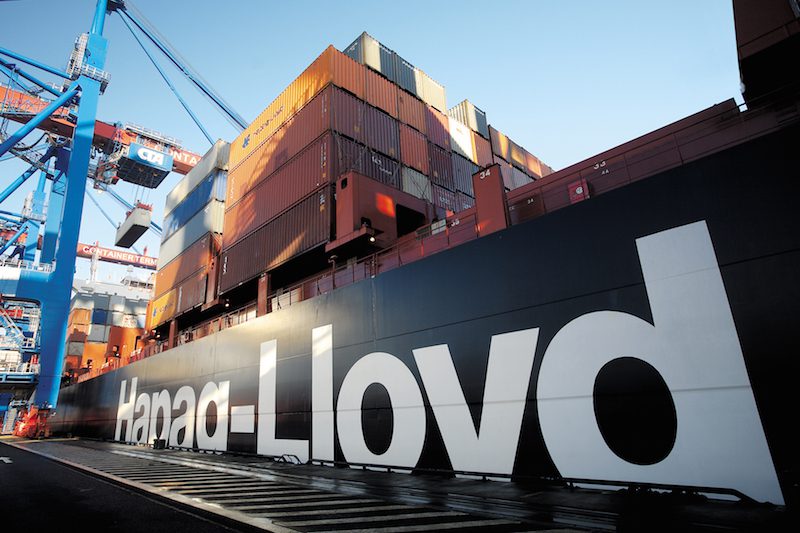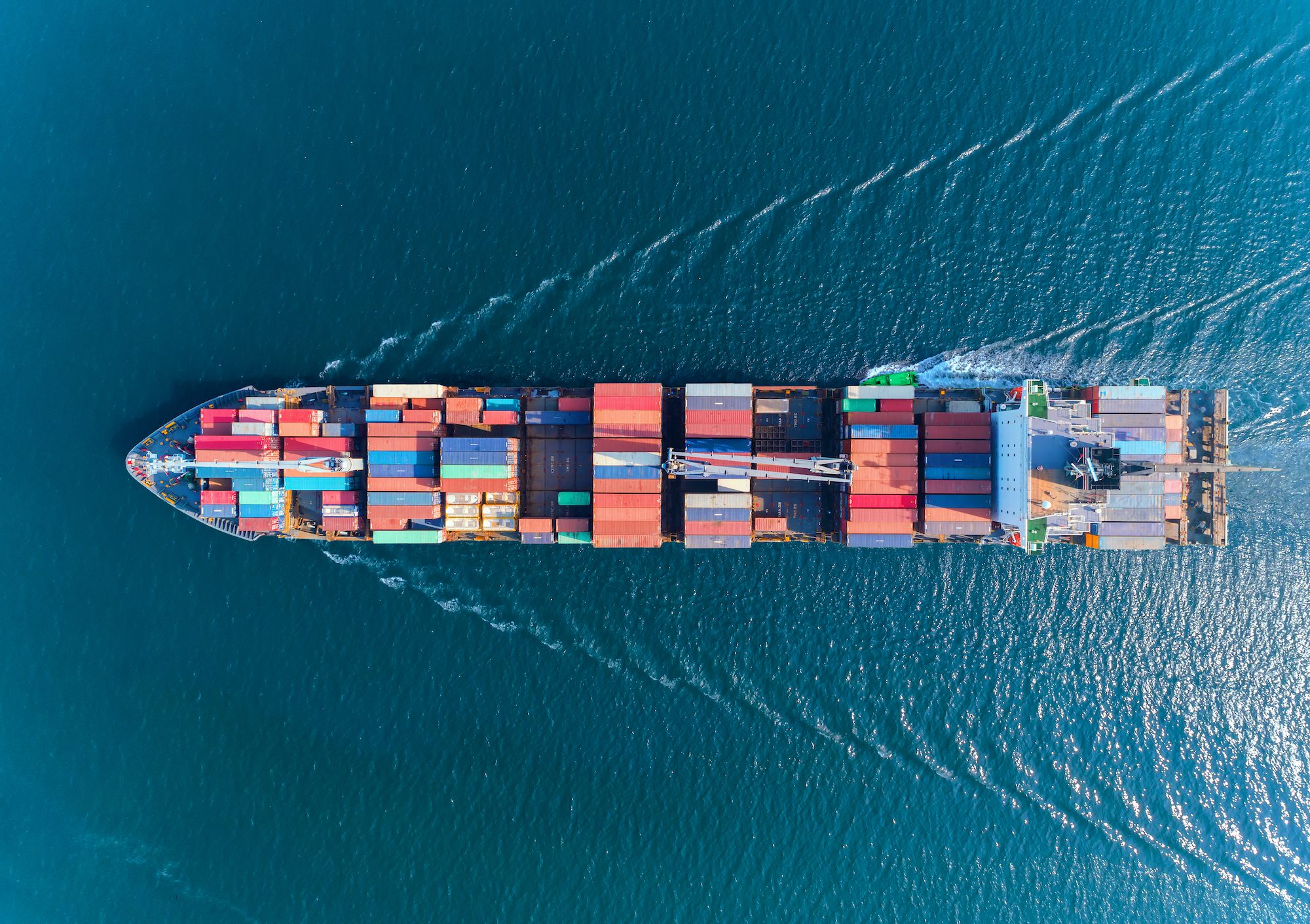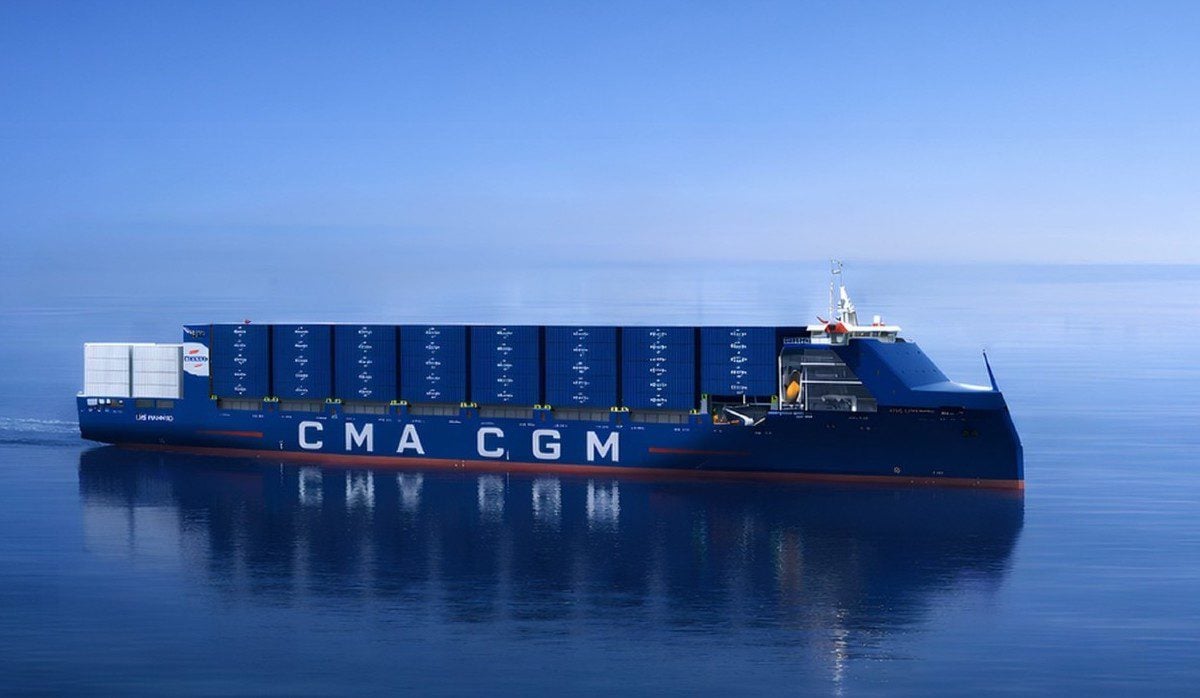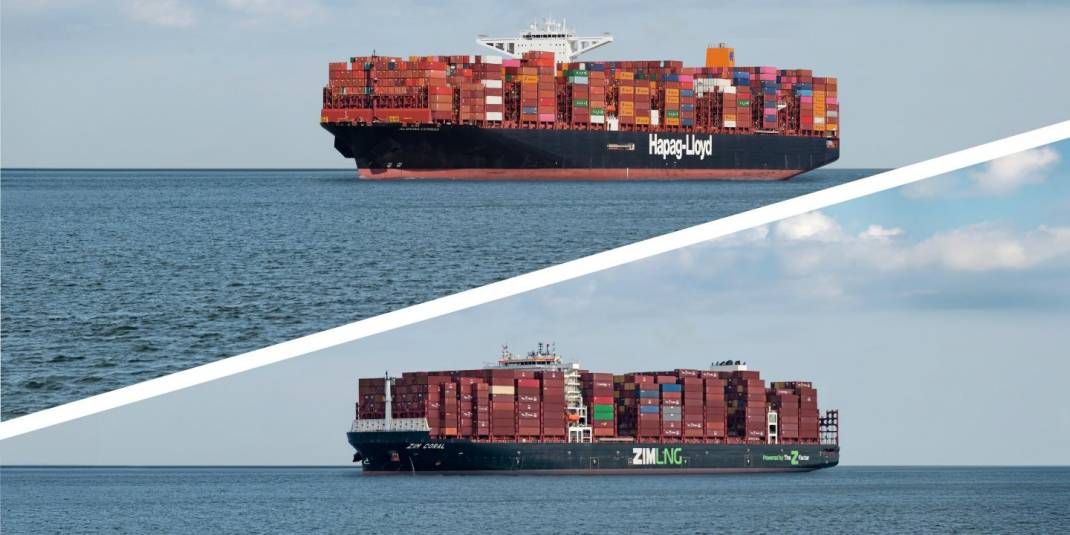Photo: Hapag-Lloyd
 By Jonathan Saul and Vera Eckert
By Jonathan Saul and Vera Eckert
LONDON/FRANKFURT, May 13 (Reuters) – German container shipping firm Hapag-Lloyd has formed a new alliance with five Asian competitors in the latest tie-up by rivals battling to cut costs in the worst downturn the industry has ever seen.
Container lines, which transport everything from bananas to iPhones, are struggling with the confluence of a glut of ships, a faltering global economy and weaker consumer demand.
By teaming up through vessel sharing arrangements, shipping lines aim to pool runs to various destinations and save on expenses to boost efficiencies.
Dubbed “the Alliance” and due to start operating in April 2017 for a five-year period initially, Hapag-Lloyd will join with Japan’s Nippon Yusen Kaisha (NYK), Kawasaki Kisen Kaisha (“K”-Line) and Mitsui OSK Line (MOL), South Korea’s Hanjin Shipping and Taiwan’s Yang Ming Marine Transport.
“Nowadays, you have to be in an alliance because you need these really big vessels to be competitive per unit cost,” said Jan Tiedemann, an analyst with shipping consultancy Alphaliner.
“I am not sure if it’s a marriage of partners who are deeply in love with one another, but they just have to join.”
Friday’s announcement follows closely that of the “Ocean Alliance”, announced in April, which comprises France’s CMA CGM , newly merged China Cosco Shipping, Evergreen and OOCL (double O).
The Ocean Alliance is also due to start operations in April 2017 subject to regulatory approval, and follows a partnership by Maersk and MSC, known as “M2”, which started in early 2015.
Hapag-Lloyd said in a statement: “This agreement is a milestone and will enable the six partners of the Alliance to offer sailing frequencies and direct coverage in the market.”
The company did not give details of the anticipated cost savings or of how power would be shared within the group.
“The market must come to its senses. Many participants find their financial means exhausted because of the ruinous competition,” said Bodo Knop, managing partner with logistics consultancy SRTS. “… some players will quite possibly leave the market altogether.”
Asked about the new alliance, Maersk chief commercial officer Vincent Clerc said consolidation made sense.
The Hapag-Lloyd formation will combine 3.5 million twenty foot equivalent units (TEU) of the global container fleet capacity, with more than 620 ships to East-West trading destinations.
The Ocean Alliance involves a fleet of 350 container ships, also with an estimated capacity of 3.5 million TEU.
These two partnerships would be larger in capacity than Maersk Line and MSC’s, which has a fleet of 185 ships and capacity of 2.1 million TEU.
The crisis in container shipping has taken its toll on lines across the sector.
Hapag-Lloyd on Friday reported a net loss of 42.8 million euros in the first quarter of 2016.
Last month South Korea’s Hanjin Shipping said it would ask creditor banks to restructure its debt.
Efforts to expand in markets such as South America have been hit by recession in Brazil and turmoil in Venezuela.
Hapag-Lloyd is in talks to merge with the United Arab Shipping Company (UASC) and follows others in the industry such as CMA CGM’s takeover of Neptune Orient Lines as well as others in China. (Additional reporting Ole Mikkelsen in Copenhagen and Jan Schwartz in Hamburg; Editing by Maria Sheahan, Alexander Smith and Sonya Hepinstall)
(c) Copyright Thomson Reuters 2016.
Editorial Standards · Corrections · About gCaptain
This article contains reporting from Reuters, published under license.

 Join The Club
Join The Club











